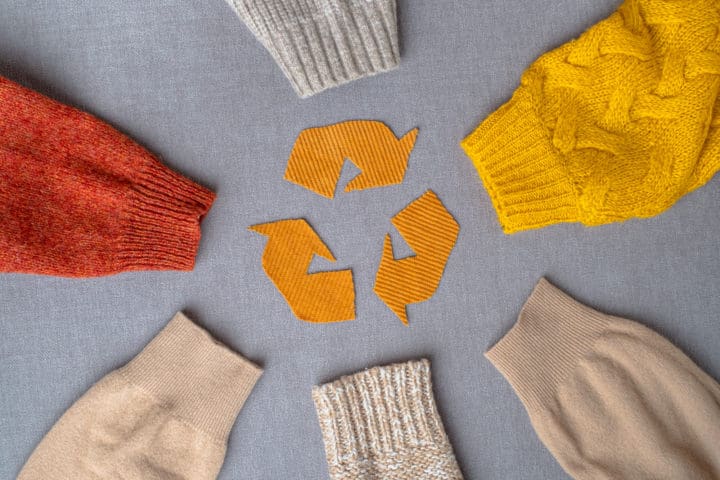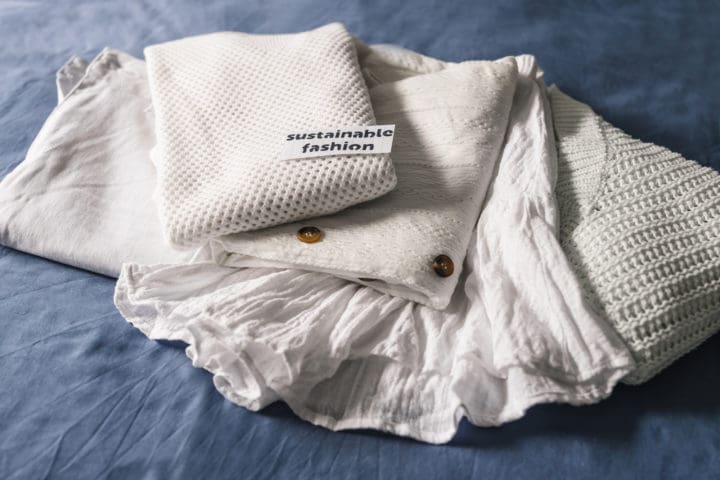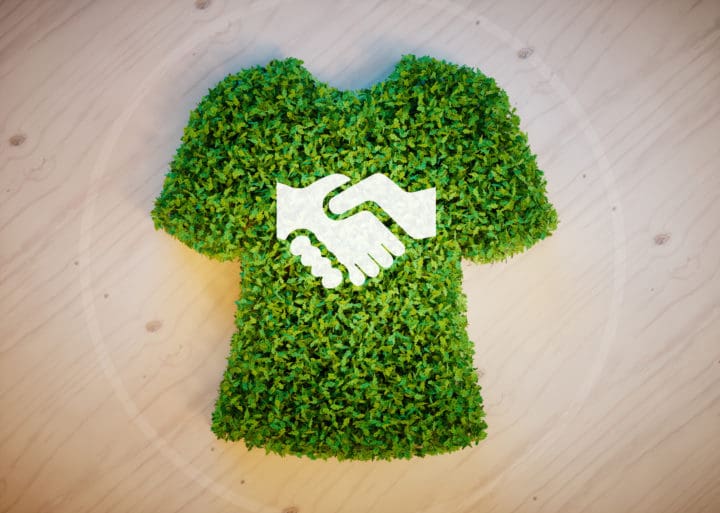Elevating Your Wardrobe: The Rise of Sustainable Fashion and Why It Matters
posted by Stacie on November 22, 2023
// Comments Off on Elevating Your Wardrobe: The Rise of Sustainable Fashion and Why It Matters
Elevating Your Wardrobe: The Rise of Sustainable Fashion and Why It Matters
As sustainable fashion weaves its way from catwalks to high streets, it's reshaping not just wardrobes but also worldviews. It's more than a trend; it's a conscious choice echoing through the aisles of fashion, where quality vies with eco-consciousness. This shift is not just about donning attire; it's a statement of environmental care and ethical responsibility. With brands big and small threading sustainability into their fabric, this movement is painting a new picture of fashion – one that's kinder to our planet and fairer to its people.

Image from Depositphotos
The Case for Sustainable Fashion in Your Wardrobe
In an era where fast fashions environmental toll is more apparent than ever, sustainable fashion emerges as a beacon of hope. This isn't just a fleeting trend, but a critical response to the urgent need for conservation and ethical practices.
Sustainable fashion means choosing garments that respect the planet and its inhabitants. It's a step towards breaking the cycle of ‘buy and discard,' urging us to ponder over the life cycle of our clothing. This mindful approach not only elevates personal style but also aligns it with the values of environmental stewardship and social responsibility.
5 Sustainable Travel Destinations worth Visiting
Why Sustainability Is So Important Right Now
The current climate of the fashion industry underscores the critical need for sustainability. Known for its rapid and disposable nature, this sector contributes significantly to global waste. Fast fashion, with its swift turnover of trends, has escalated textile waste, with clothing being produced and discarded at an alarming pace.
Embracing sustainable practices, such as fostering circularity and crafting garments for longevity, is vital. Data on sustainable fashion also shows that around 62% of all clothing is made partially or entirely from synthetic fibres and only 1% of discarded clothing is recycled – highlighting the need for change within the industry. A shift towards a more responsible and environmentally-friendly future isn't just a trend; it's an essential move towards preserving our planet.

Image from Depositphotos
How to Adopt Sustainable Fashion Practices
For a consumer, adopting sustainable fashion starts with being informed. It's about looking beyond the label to understand a brand's ethical practices. This could involve researching their sourcing methods, labour policies, and environmental impact.
Key materials to watch for include organic cotton, recycled fabrics, and other eco-friendly textiles. Changing our buying habits also plays a crucial role. This means prioritising quality over quantity, choosing garments that promise longevity, and opting for versatile, season-neutral pieces. It's about embracing a wardrobe that's not just stylish but also considerate of the planet and its future.
Easy Steps Towards Sustainability
The Role of Brands in Sustainable Fashion
In the landscape of sustainable fashion, many brands are improving standards and setting new benchmarks in the industry. Patagonia, for instance, has prioritised minimising the ecological footprint of their products since their inception. Since 1996, the renowned outdoor clothing brand has also been using organic cotton in their clothing. As well as this, their notable 2017 initiative ‘Worn Wear’ also encourages their customers to reduce waste by extending the life of their clothing – through repairing, reusing, and recycling.
Another brand which has focused on ethical practices from the very beginning is Swedish denim brand Nudie Jeans. This brand has brought durability and ethical manufacturing to the forefront, promoting a circular approach to fashion with their emphasis on 100% organic cotton and denim recycling.
Sustainable fashion goes beyond these two clothing companies in many other ways with other brands using clothing designs which are meant to last through multiple seasons, using environmentally conscious dyes, and supporting environmental initiatives. These approaches show how these brands are focusing on a more sustainable future and changing the fashion industry for the better.

Image from Depositphotos
Sustainable Materials and the Importance of Recyclability
In the realm of sustainable fashion, the materials we choose are pivotal. Sustainable materials such as organic cotton, hemp, and bamboo not only reduce environmental impact but also promote ethical production. Equally important is selecting clothing that can be recycled, extending its lifecycle and reducing waste.
By opting for recyclable fabrics, we contribute to a circular fashion economy where every garment gets a chance for a new life. This approach not only conserves resources but also challenges the traditional ‘take-make-waste' model, steering us towards a more sustainable and responsible fashion future.
How to Embrace Sustainable Fashion in Everyday Life
Embracing sustainable fashion in daily life is about making thoughtful choices. Start by assessing your wardrobe: favouring clothes that are versatile and season-neutral can significantly reduce the need for constant updates.
When shopping, consider the longevity of a garment – will it last beyond 30 wears? Donating clothes instead of discarding them is another step towards sustainability, giving garments a second life and reducing waste. Embracing this ethos not only contributes to a healthier planet but also fosters a deeper appreciation for the clothes we wear and the stories they tell.
Ideas for Incorporating Big and Small Sustainable Life Choices
Comments Off on Elevating Your Wardrobe: The Rise of Sustainable Fashion and Why It Matters







